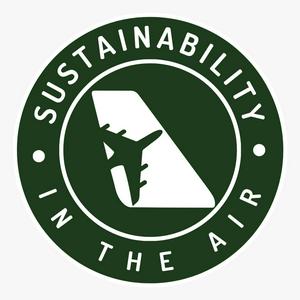How Syzygy Plasmonics is turning biogas into cost-competitive sustainable aviation fuel
In this episode, we speak with Trevor Best, Co-founder and CEO of Syzygy Plasmonics, who shares how his company’s proprietary photocatalytic technology converts waste biogas into sustainable aviation fuel, and has the potential to reach fossil jet fuel parity. Best discusses:NovaSAF’s unique value proposition: converting biogas from landfills, dairy farms, and wastewater treatment plants into SAF, simultaneously addressing methane emissions whilst decarbonising aviation transport.The technology’s competitive advantage: using light instead of heat which enables the use of raw biogas without extensive cleanup, scaling efficiently at smaller sites, and increasing yield by incorporating CO2 into the fuel rather than separating it out.Strategic targeting of stranded biogas assets that are far from natural gas grids, which helps secure feedstock at low prices $5-6 per MMBtu, making jet fuel parity achievable.How Syzygy is building the world’s first biogas-to-SAF plant in Uruguay, that can produce 400,000 gallons of SAF anually, serving as proof of concept before scaling to 100,000 tons per year by 2030 through clustered developments.The global biogas opportunity: the International Energy Agency estimates reserves could theoretically produce 580 million tons per year of SAF, exceeding total global jet fuel consumption, though 95% remains stranded today.Best also shares his leadership philosophy: the importance of listening over talking, the inevitability of failure in entrepreneurship, and why persistence matters more than avoiding mistakes.If you LOVED this episode, you’ll also love the conversation we had with Dave Kettner, President and General Counsel at Virent, who shares the company’s pivotal role in shaping a sustainable future in aviation. Check it out here. Learn more about the innovators who are navigating the industry’s challenges to make sustainable aviation a reality, in our new book ‘Sustainability in the Air: Volume 2’. Click here to learn more.Feel free to reach out via email to
[email protected]. For more content on sustainable aviation, visit our website green.simpliflying.com and join the movement. It’s about time.Links & More:Syzygy PlasmonicsSyzygy Plasmonics begins development of the world's first electrified biogas-to-SAF plant - PR NewswireSyzygy Plasmonics outlines dual-certified, cost effective RFNBO and Bio SAF solution as Europe calls for urgent action on Net-Zero aviation - BioEnergy TimesSyzygy Plasmonics and Velocys partner for sustainable aviation fuel production in Uruguay - ChemAnalyst


